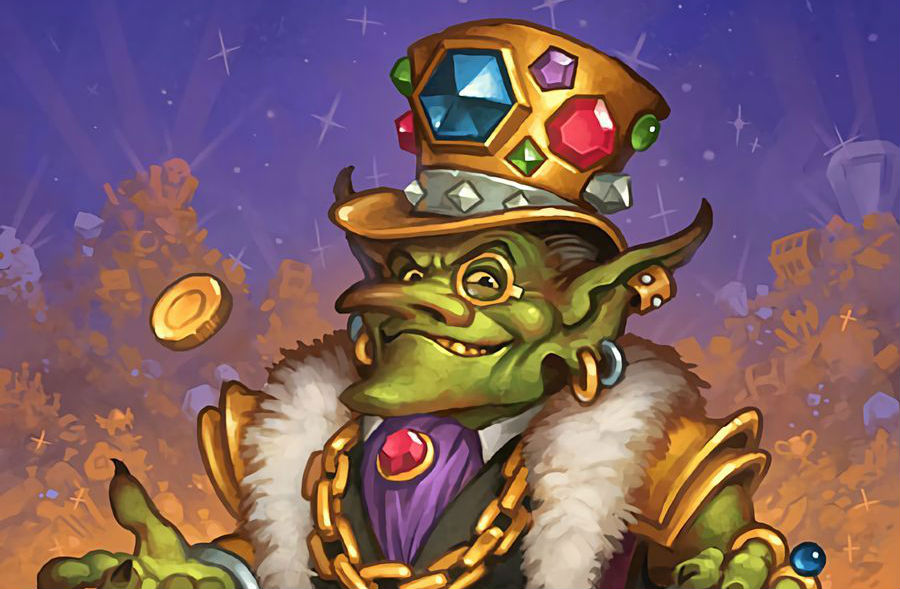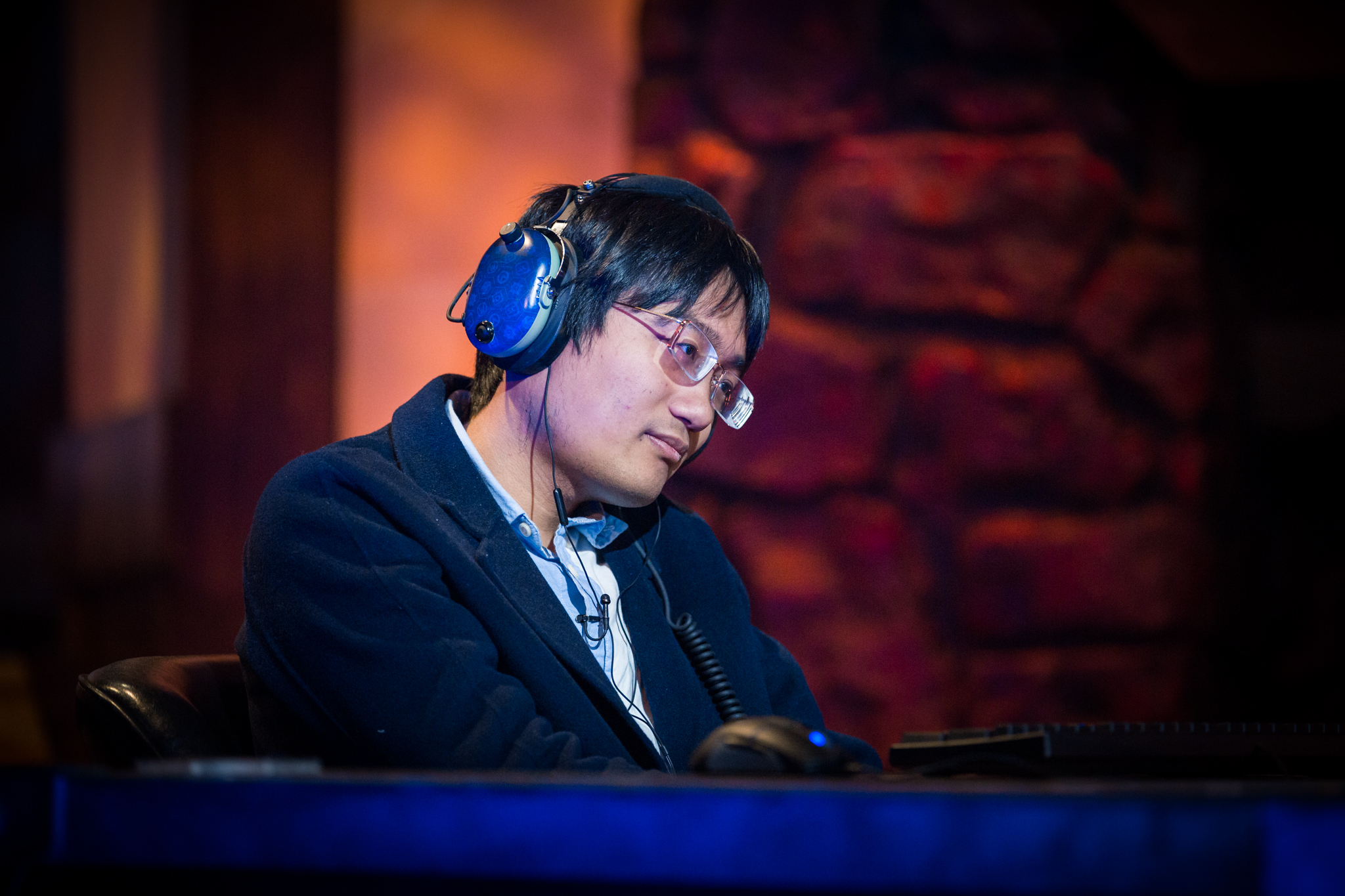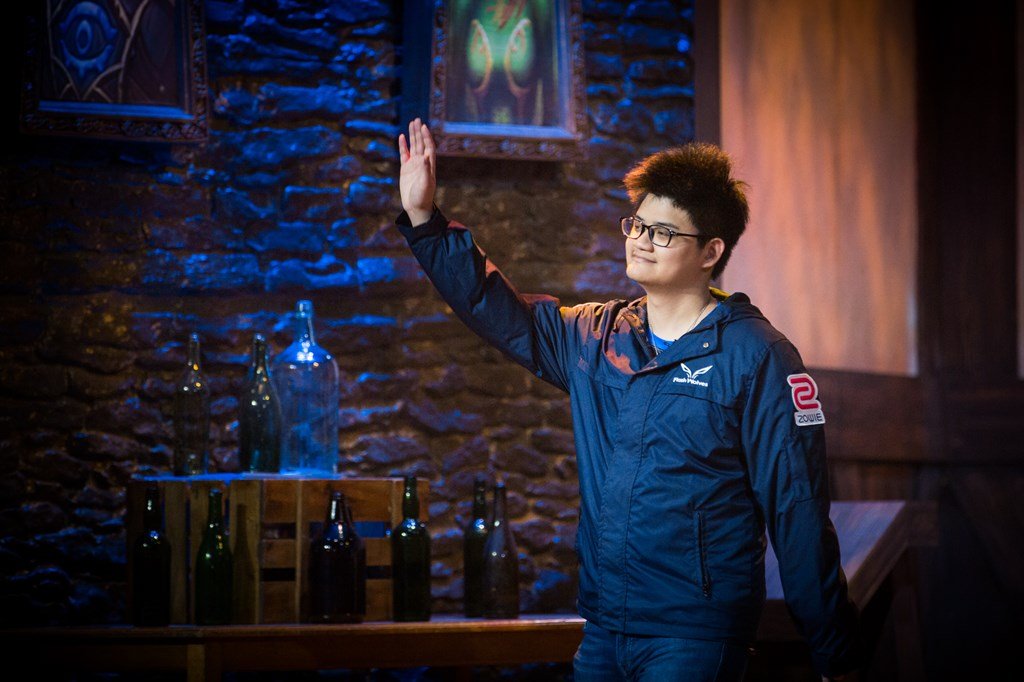What do esports winners spend their money on?
We ask Hearthstone World Championship competitors what they'll do with their winnings.

What's the difference between $100,000 and nothing? For Surrender, it was an extremely clutch Mind Blast, laying in wait second from the bottom of his deck, giving his Highlander Priest just enough reach to finish off the menacing Jade army emerging lockstep from ShtanUdachi's hand. It couldn't have come at a more important time. Surrender was low on both excuses and resources, and pelting his opponent's face with pebble-sized Holy Smites and Lyra cycles was paving a long road to nowhere. Honestly, I forgot he had any gas left. He pressed his heavy eyes into his sleeve as ShtanUdachi tried, and failed, to put his health-bar out of range. There's nothing quite like watching 20 turns of almost-losing paying off with the biggest victory of a young man's career.
ShtanUdachi is still getting paid. He will walk away with the diminished fringes of the Hearthstone World Championship prize-pool. A fifth-place loss is worth $50,000, which is nothing to sneeze at, unless you're going to spend the rest of your year scrutinizing a few tricky decisions down the stretch. Surrender, on the other hand, is now guaranteed a six-figure payout, and is two victories away from the quarter-of-a-million first prize. We exchange a trembling handshake, as his bantamweight frame sinks into one of the black plush armchairs backstage. Through a translator, he tells me his mother tunes into every one of his matches on the family tablet, even if they're airing at two in the morning. "This is personal, but my family has never been very wealthy. We moved around a lot. I feel like that with the prize money I get... I want to see what I can do," he says.

Perhaps it's overbearing to say $250,000 is life-changing money, but it's certainly life-altering money. Hearthstone pros, unlike the composite teenaged talent in other esports, tend to be more diverse in their backgrounds and priorities, and that makes each of their financial boons uniquely personal. DocPwn is a tall, bearded French-Canadian who is never seen in public without his turquoise Montreal Impact ballcap. He's also in his mid-30s, gainfully employed, and somehow managed to upset the reigning world champion Pavel back at the Winter qualifiers.
He wants to buy a house in Los Angeles to be closer to esports events, but not before extending his vacation in Amsterdam.
Muzzy is a cherished American player who's been slamming his head at the top-end of competition for years, Kolento is a steely-eyed Ukrainian who's established himself as a scene hero through pure sickness alone, and Ant is an uber-positive Fresno native who managed to stay prenaturally merry despite getting annihilated in both of his matches, ending his tournament run far too early. I hated to see them lose; not out of any wagers, or killed stories, or fanatical loyalty to their teams or countries of origin. No, Hearthstone is just a brutal game. The weary, thin-lipped concession as a world-title dream flatlines is one of the most harrowing things to watch in esports. You feel it in your spine.

At the very least, we have a fascinating top four. The bespectacled Taiwanese kid Tom60299 is probably the most brash when I ask him what his money plans are in the player's lounge. The first thing he's doing when the plane touches down in Taipei is buying his practice partners the most luxurious meal in the city. "Something expensive, like lobster," he laughs. (He also plans on getting a car, though he hasn't decided which yet.)
The mainland's Jason Zhou (who is making his second appearance in a Hearthstone World Championship top four), intends to take a vacation to the Chinese metropolis of Hangzhou, before consolidating the rest of the money into his savings account to purchase a house. (While it won't get him all the way there, Zhou says every little bit counts). Fr0zen, the last North American standing, feels the same way. He wants to buy a house in Los Angeles to be closer to esports events, but not before extending his vacation in Amsterdam.
Imagine if Tom and Surrender meet in the finals, and that $250,000 is either poured into a Ferrari or the livelihoods of a couple proud parents halfway around the world. Hearthstone's professional format makes sure that we empathize with every bad beat, and here, at the end, the stakes are so high it's almost hard to look. There are no more re-buys, no more qualifiers, and probably no more million dollar prize-pools until at least 2019. Tomorrow, Hearthstone will swallow three of them whole. It's a horrifying thought, but as a selfish spectator, I wouldn't have it any other way.
Keep up to date with the most important stories and the best deals, as picked by the PC Gamer team.

Luke Winkie is a freelance journalist and contributor to many publications, including PC Gamer, The New York Times, Gawker, Slate, and Mel Magazine. In between bouts of writing about Hearthstone, World of Warcraft and Twitch culture here on PC Gamer, Luke also publishes the newsletter On Posting. As a self-described "chronic poster," Luke has "spent hours deep-scrolling through surreptitious Likes tabs to uncover the root of intra-publication beef and broken down quote-tweet animosity like it’s Super Bowl tape." When he graduated from journalism school, he had no idea how bad it was going to get.

